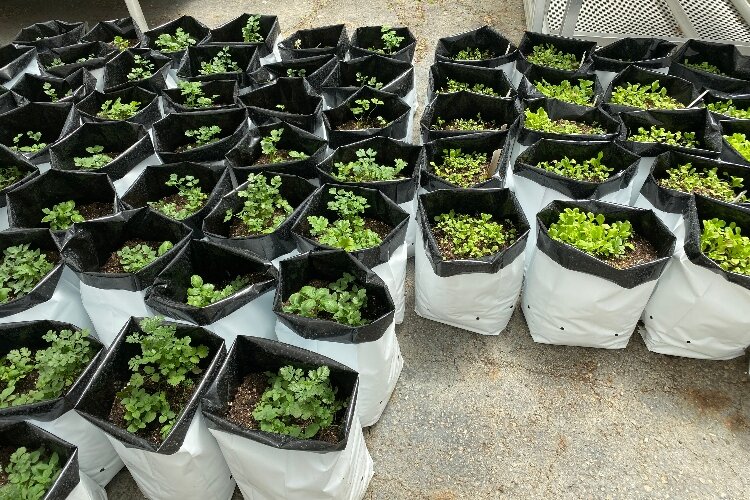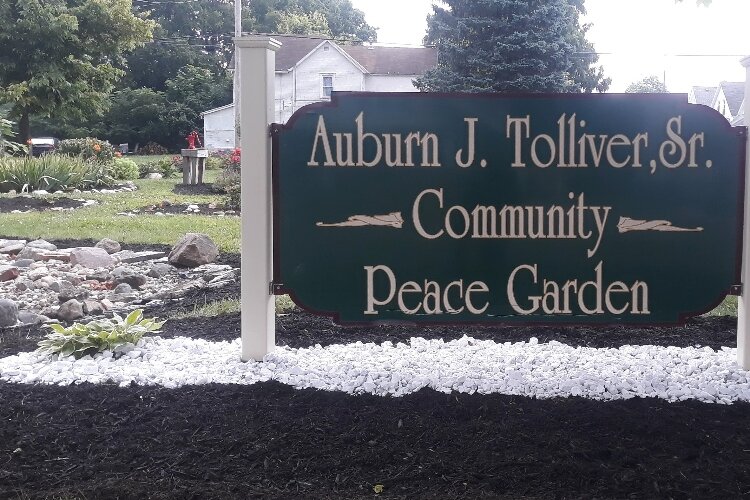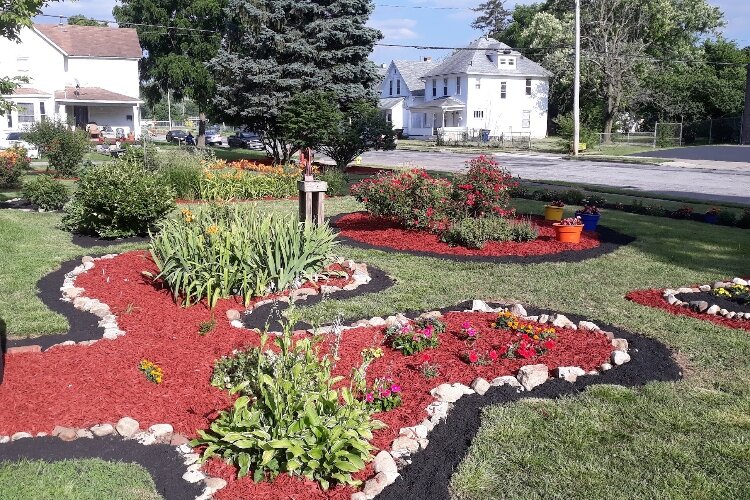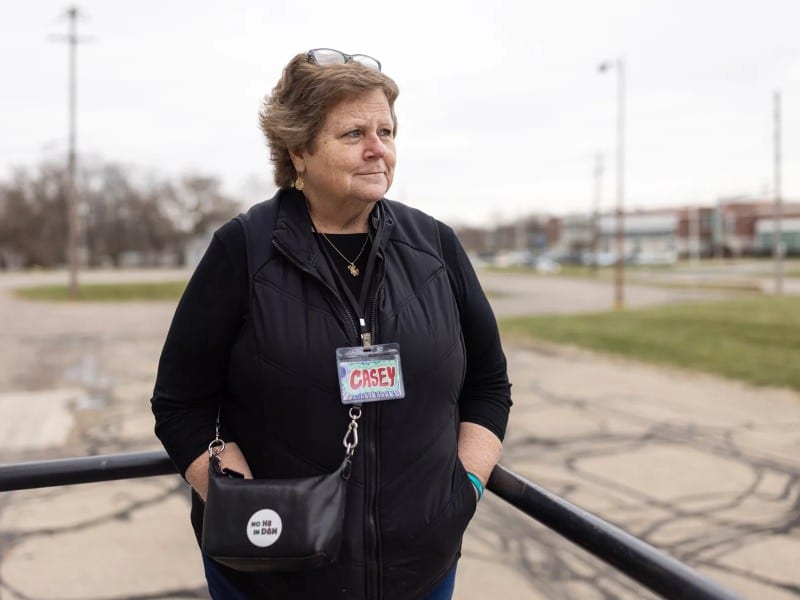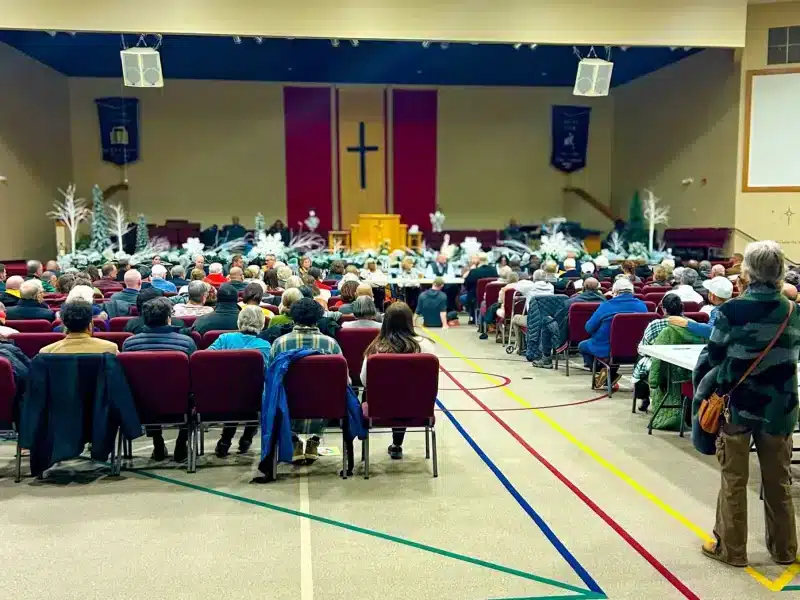Partner Partner Content People, Parks, Power: Organizations committed to advancing food production in Southside greenspaces
Local organizations are working to help grow food, distribute produce and provide education about growing.
Editor’s note: This is the fourth in a series of articles – People, Parks & Power – that dives into the commitment of local people working to make long-term, systemic changes to positively affect greenspaces and – in turn – the overall health and well-being of Springfield’s Southside and beyond.
The seeds for Green Environmental Outreach were planted years ago when Kenneth Tyree passed out free food every weekend on Springfield’s Southside.
“I’m the type of person, if I have anything extra I’m going to help,” says Tyree, chief executive officer of Green Environmental Outreach (GEO).
GEO is just one member of the Unified Collective – a group of local organizations working together to revitalize the south end of Springfield – that is using its resources to grow food, distribute produce to local residents and give them the knowledge and ability to grow their own.
The efforts also tie into the goals of The Conscious Connect Community Development Corporation, the nonprofit organization that convenes the Unified Collective. It was awarded a $500,000 People, Parks, and Power grant to promote park equity. Residents of and visitors to the Southside also are invited to provide their thoughts about park accessibility and programming through a P3 survey. The deadline to complete the survey is Dec. 22.
The nonprofit GEO has renovated vacant lots into food gardens and greenspace that not only beautifies the area at 724 S. Plum St. but also educates visitors on produce and eating well, says Gerald Moore Jr., president of GEO. Its produce includes onions, kale, peppers, potatoes, tomatoes, apples, pears and herbs.
Most of the harvest is distributed throughout the community, Tyree says.
The organization, along with Springfield Ohio Urban Plantfolk (SOUP) and others, also offers the Porch Garden Project each spring, providing free container gardens to southside residents. Sherry Chen, the SOUP coordinator who founded the group with three other women, aims to provide the transportable gardens to 100 families each year.
They are a great introduction to gardening, says Chen, who knows that not everyone has the physical ability or desire to garden and that people come to food in different ways.
That’s why SOUP invites others in the neighborhood to join them in growing food, learning to cook it or simply coming to buy food.
“I learned a long time ago multiple points of entry is the way to offer something to someone,” Chen says.
SOUP cares for Melrose Acres at 1030 McCain Ave. Chen believes it is the only official greenspace in Springfield that uses no-till practices, using other ways to support the growth of healthy plants.
SOUP also raises chickens and offers classes on gardening, nutrition and food preservation in conjunction with Central State University Extension. But the focus is on food production, and the nonprofit distributes produce like squash, zucchini, okra and cucumbers via two southside farm stands on Friday afternoons in the summer.
“We sell cheap,” Chen says. “The goal is to get fresh food in the neighborhood.”
Climate data and other information shows that food availability and food security will be impacted, she says. As that occurs, residents will need not only green space, but also the knowledge on how to grow produce in an urban setting.
“We’re headed toward a place where people most likely will need to grow some of their food, at least a little bit,” Chen says.
As winter approaches, the harvesting season for many has come to an end. But Brian Keith, creator of the Auburn J. Tolliver Sr. Community Peace Garden, hopes the garden will remain an inspiration to the neighborhood and what residents can do in their own lawns.
“You can take this concept and do it in your backyard or front yard – whatever makes you comfortable,” Keith says.
Nearly 10 years ago Keith created the garden after a plot of land was donated at 1626 S. Limestone St. It is named for his great-grandfather, a preacher whose legacy he wanted to honor.
Keith says he was suspended as a fifth-grade student and spent his days with Tolliver.
Disappointed, Tolliver told him that the suspension was a step toward the penitentiary. It stuck with him.
“I tried to do my best to prove to him that wasn’t the path I was on,” Keith says.
Today the garden showcases a variety of flowers like tulips, roses and sunflowers. Leftover food grown at the garden – including tomatoes, peppers, collard greens and watermelon – is donated to the food pantry at St. John Missionary Baptist Church, he says.
But he also wants the garden to be a place of serenity, where visitors can relax and enjoy the view, maybe take off their shoes and connect with the earth.
“It definitely brings me peace, and I would hope people come there and feel the same kind of energy,” Keith says.
While greenspace and produce are pieces of the puzzle, they are only part of the way GEO and others want to impact the southside. The organization also is making headway in addressing matters like policy, social justice issues, engagement and awareness for underserved communities.
Moore says that the reason GEO touches on so many issues is because the issues all touch on one another. For example, health can relate to many things, including food, environment and education issues.
“We understand food and the environment play a major role,” he says.
There is a lot to address, and many nonprofit organizations are now connected and working toward accomplishing the same goals, Tyree says.
“Instead of doing things independently, and the same thing, we have a coalition at this point,” Tyree says. “There’s always power in numbers.”


